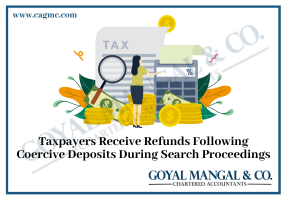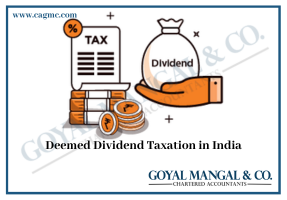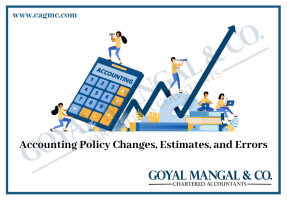
In the constantly changing world of e-commerce, it is essential to include online accounting. Businesses operating in the online market have distinct financial concerns as the market grows. A few of these difficulties include managing supplies, understanding tax laws, and arranging transactions over multiple platforms on the internet. To properly meet such objectives, e-commerce businesses needs to have an accounting system that is reliable and customized for their unique requirements. A company may have to invest a significant amount of money to maintain an online accounting system. Companies can boost their operational efficiency and success with the right online accounting system.
Table of Content
What is Accounting?
Accounting involves recording and summarizing commercial and financial transactions as well as assessing, confirming, and reporting the results. It is essential for many or say all corporations, NGOs, governments, and individuals to conduct their financial affairs in an efficient, effective and transparent manner. It serves as the foundation for making informed financial decisions and ensuring financial stability and growth for an organization in its financial statement. Accounting basically enables individuals and the companies to keep their finances accurate and clear.
Overview of the e-commerce industry
The e-commerce industry is a fast growing sector that includes the online purchase and sale of goods and services. It includes Business-to-Consumer (B2C), Business-to-Business (B2B), Consumer-to-Consumer (C2C), and Consumer-to-Business (C2B) models. Key trends contain mobile commerce (M-commerce), omnichannel retailing, personalization, subscription services, and dominant online marketplaces. There are many challenges in E- commerce industry which includes intense competition, logistics, cybersecurity, regulations, and building customer trust. However, the future of e-commerce is bright, with continued growth anticipated due to rising internet usage and technical advancements.
Future of E-commerce and Accounting
The future of e-commerce accounting is, on the brink of transformation and innovation. E commerce is expected to grow as technology progresses and consumer preferences change. Augmented reality and virtual reality have the potential to improve shopping experiences while blockchain technology can ensure transparent transaction records. Moreover, sustainability and ethical practices are likely to become increasingly important in the operations of e commerce. For e-commerce bookkeeping it is important to have e-commerce accountant.
The Online Accounting for E-commerce sector will witness changes, in accounting practices. Cloud based accounting systems will become increasingly common enabling time insights and smooth integration, with e commerce platforms. Advanced AI and machine learning will automate tasks, enhancing accuracy and efficiency. Additionally, with the growth of border e commerce businesses will need to comply with intricate international tax regulations.
Which Accounting Method is Best for E-commerce?
The choice of accounting method for e-commerce businesses depends on various factors, including the business’s size, structure, tax regulations, and financial goals. The two primary Online accounting for E-commerce methods are:
Accrual Accounting:
- Advantages:
- Provides a more accurate representation of a business’s financial position because it records revenue and expenses when they are earned or incurred, regardless of when cash is received or paid.
- Better matches revenues and expenses, providing a clear picture of profitability.
- Often ideal for businesses with multifaceted inventory systems or those that extend credit to customers.
- Considerations:
- Requires more extensive record-keeping and tracking of accounts receivable and payable.
- May not correlate with cash flow, especially if payments from customers or payments to suppliers are delayed.
- Suitability for E-commerce:
- Accrual accounting is generally suitable for larger e-commerce businesses with a significant volume of transactions and inventory management needs. It provides a more accurate financial picture and helps with inventory tracking.
Cash Accounting:
- Advantages:
- Online Accounting for E-commerce , Simpler and more straightforward than accrual accounting, as it records revenue and expenses when cash is actually received or paid.
- Provides a clear view of cash flow, making it easier to manage day-to-day finances.
- Requires less administrative overhead in terms of record-keeping.
- Considerations:
- May not accurately reflect the business’s financial performance since it doesn’t recognize revenue until cash is received, potentially delaying the recognition of income.
- May not comply with accounting standards or tax regulations in some cases, depending on the business’s size and structure.
- Suitability for E-commerce:
- Cash accounting is often suitable for small or newly established e-commerce businesses with simple financial structures. It simplifies record-keeping and aligns with cash flow.
Key Features of Effective Online Accounting Systems
Effective online accounting systems enable companies to keep accurate financial records, make informed decisions, and streamline financial processes, all of which contribute to their growth and success.
- User-Friendly Interface: Data entry and reporting are simplified by a user-friendly, intuitive design, making it accessible to users of all accounting ability levels.
- Cloud-Based Accessibility: Cloud-hosted solutions provide safe access from any location with an internet connection, allowing for remote work and collaborations.
- Data Security: Strong security safeguards, such as encryption and data backups, protect sensitive financial data from illegal access and loss.
- Automation: Data input and invoicing are two examples of automated procedures that eliminate errors and free up time for more strategic financial analysis.
- Integration Capabilities: Integrating seamlessly with other applications, such as CRM systems and payment processors, improves data flow and ensures consistency.
- Real-Time Reporting: Online systems offer real-time financial statistics and dashboards, allowing for quick and informed decision-making.
- Scalability: These systems can handle increasing transactions and users without causing performance difficulties.
- Multi-Currency Support: For global operations, like support for multiple currencies simplifies accounting.
- Customization: Charts of accounts, invoicing templates, and reports that may be customized provide versatility.
- Audit Trail: All financial data changes are tracked by comprehensive audit trails, assuring transparency and accountability.
- Compliance: Complying accounting standards and tax regulations simplifies compliance reporting.
Third-Party Add-Ons: Support for third-party extensions extends the functionality to meet unique business requirements.
Conclusion
E-commerce will continue to increase as a result of technological advancements, changes in customer behavior, and a greater emphasis on sustainability. Online accounting in the e-commerce industry will evolve as cloud-based technology, automation, and data analytics become more common, allowing for real-time insights and effective financial management. As these two worlds converge, businesses must remain agile, embrace innovation, and seek professional assistance to manage the complex situation. The future contains countless opportunities for growth, efficiency, and improved client experiences as a result of this dynamic collaboration.







